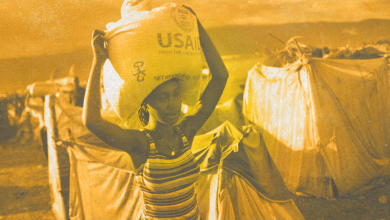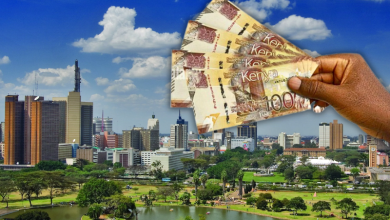Odinga and Nyerere: The economics of defiance

DAR ES SALAAM: RAILA Odinga’s demise marks more than the death of a political figure; it closes a generational loop linking two moral economies and that is Kenya’s democratic reformism and Tanzania’s nation building idealism.
In East Africa’s modern history, Odinga and Julius Nyerere stand as the region’s dual architects of political conscience, each refusing to be colonised psychologically even when their nations remained entangled economically.
Their shared struggle was not merely for power but for mental sovereignty and that is the right to define governance without external scripts.
As Tanzania approaches its General Elections on October 29th, 2025, this convergence of legacies forms a mirror: One nation remembering the ethics of independence, another testing whether its democracy still possesses that discipline.
Both men understood that foreign manipulation often begins in the mind long before it reaches the economy.
Nyerere’s Ujamaa project, born in the 1960s, sought to construct not only a socialist state but a psychologically independent citizenry people who would not equate moderniSation with imitation.
Odinga’s lifelong political activism, from the Moiera detentions to the post2010 constitutional reforms, had a parallel logic: To build institutions that could resist the transactional colonialism of aid diplomacy and elite capture.
Where Nyerere emphasised collective responsibility, Odinga emphasised institutional transparency; both saw foreign dependence as a moral distortion.
Each articulated a form of cognitive sovereignty—the capacity to think nationally before reacting globally.
Nyerere’s own words remain the region’s clearest articulation of this psychological creed: “If education does not make a person better in thinking, working and respecting the dignity of others, then that education is meaningless.”
To him, education was not a certificate but mental engineering a process of cultivating independent thought, productive work and moral consciousness.
In modern behavioural terms, it was a national shift from external dependency to internal control.
Odinga’s parallel principle was political: Democracy without autonomy is theater, not governance.
Both understood that when citizens think critically and act patiently, nations accumulate psychological capital the foundation of economic credibility and institutional resilience.
This connection between mind and market is now Tanzania’s most underappreciated economic asset.
The country’s macro indicators remain stable: GDP growth projected at 5.2 per cent for 2025, inflation below 4 per cent, fiscal deficit at 3.5 per cent of GDP and external reserves covering 4.3 months of imports.
The Tanzanian shilling (TZS=X) has depreciated at an average of only 2.8 per cent annually over the last decade, while 2029 Eurobond yields (TANZAN2029. YD) hover near 8.4 per cent.
Yet behind these numbers lies something more fundamental: Behavioural consistency. Tanzania’s fiscal stability is less a product of external discipline than of cultural restraint-the same self-control that defined Nyerere’s politics and Odinga’s endurance.
In behavioural-finance terms, this is expectation anchoring: When citizens, investors and policymakers share a stable narrative about the nation’s direction, volatility declines and capital costs fall.
ALSO READ: Thousands bid farewell to Raila Odinga in Bondo
Historical data from East Africa suggest that every 10 per cent increase in perceived political tension widens sovereign yields by roughly 80 basis points and raises FX volatility by 2.5 per cent.
In 2020, when election related rumours spread across the region, capital inflows into frontier bonds fell by nearly 0.5 per cent of GDP.
These are not moral abstractions and they are quantifiable penalties for emotional governance.
Tanzania’s current spread advantage of about 180 basis points over peers such as Ghana and Nigeria is, at its core, a dividend on national composure. But that composure is being tested.
As the 2025 elections approach, online disinformation campaigns, foreign-financed influence networks and local populists exploit identity and impatience to undermine faith in institutions.
The political narrative of “election sabotage” has psychological and financial implications.
If it escalates, investors will begin to price uncertainty into Tanzania’s sovereign curve, pushing 10- year yields above 9 per cent and weakening the shilling’s forward rate.
Each act of division translates into a financial cost proof that civic disorder is a macro variable. Behavioural economics calls this sentiment contagion: When emotional volatility replaces policy predictability as the dominant market signal.
Odinga’s life provides a counterexample. Across five presidential defeats, he never abandoned the constitutional path, understanding that legitimacy in governance is a marathon of patience, not a sprint of outrage.
Nyerere embodied the same doctrine when he voluntarily stepped down in 1985, showing that moral authority can outlast formal power.
Both men internalised restraint as political strategy. In today’s Tanzania, where 60 per cent of the electorate is under 35, that psychological template is crucial.
Patience is not passivity, but it is the behavioural infrastructure of democracy. Emotional discipline lowers risk premiums, strengthens the currency and attracts patient capital. For Tanzania’s youth, this election represents both civic responsibility and financial agency.
Every peaceful act of participation strengthens the creditworthiness of the state; every rumour resisted protects the shilling’s equilibrium.
A voter turnout above 70 per cent under calm conditions could compress yields by up to 100 basis points, improve FDI inflows beyond 700 million US Dollars in 2026 and reinforce Tanzania’s perception as East Africa’s anchor of policy stability.
In contrast, electoral disruption could reverse five years of fiscal consolidation, increase external borrowing costs by 0.3 per cent of GDP and drain liquidity from the Dar es Salaam Stock Exchange All Share Index (DSEI).
Democracy, in measurable terms, is an asset class and public psychology is its risk driver. The geopolitical dimension adds urgency.
Tanzania’s calm has historically balanced Kenya’s volatility, Uganda’s centralisation and Rwanda’s policy discipline.
Should Tanzania succumb to psychological fragmentation, the regional equilibrium would tilt, weakening East Africa’s collective investment narrative.
Nyerere’s non-alignment once insulated the region from Cold War manipulation; Odinga’s defiance challenged Kenyan democracy from elite capture.
Today, the same mental independence must defend Tanzania from digital colonisation algorithmic manipulation and perception warfare designed to erode faith in state institutions. Cognitive resilience is now national security.
The financial logic follows directly: Investor confidence correlates not only with fiscal data but with the perceived mental order of the polity. Markets interpret emotional volatility as a proxy for governance instability.
Tanzania’s continued stability, reflected in the low beta of its Euro bond relative to frontier peers, signals to global institutions that the country’s political cognition remains intact.
In an era when macroeconomic stability is increasingly behavioural anchored in perception management, institutional credibility and policy signalling Tanzania’s democratic patience becomes its most valuable commodity. Nyerere and Odinga embodied moral clarity and institutional courage.
Nyerere taught that freedom begins in the mind; Odinga proved that reform endures through lawful struggle.
Both knew sovereignty must be conceived in thought before secured in finance.
Their legacies now call Tanzanians, especially the youth, to show the same discipline as the 2025 Tanzania election approaches a test not just of democracy, but of composure.
Calm conduct will decide whether the next decade strengthens trust or breeds fragility.
Thinking clearly, as Nyerere taught, stabilises morals and markets; enduring patiently, as Odinga lived, builds lasting institutions. Together, they define East Africa’s path forward democracy grounded in integrity and sustained by restraint.





